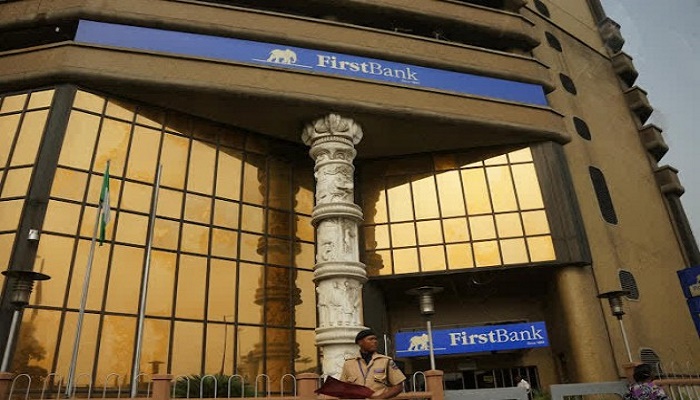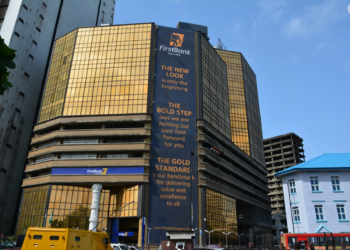FBN Holdings Plc on Thursday announced its unaudited results for the six months ended 30 June 2017.
Here are key highlights of the results
Income Statement
- Gross earnings of N288.8 billion, up 7.8% year-on-year (y-o-y) (Jun 2016: N267.9 billion)
- Net-interest income of N164.1 billion, up 30.2% y-o-y (Jun 2016: N126.1 billion)
- Non-interest income of N50.5 billion, down 46.3% y-o-y (Jun 2016: N94.1 billion)
- Operating income of N214.4 billion, down 2.6% y-o-y (Jun 2016: N220.1 billion)
- Impairment charge for credit losses of N62.4 billion, down by 10.7% y-o-y (Jun 2016: N69.9 billion)
- Operating expenses of N116.6 billion, up 11.8% y-o-y (Jun 2016: N104.3 billion)
- Profit before tax of N35.6 billion, down 22.4% y-o-y (Jun 2016: N45.9 billion)
- Profit after tax N29.5 billion, down 17.8% y-o-y (Jun 2016: N35.9 billion)
Statement of Financial Position
- Total assets of N4.9 trillion, up 3.0% year-to-date (y-t-d) (Dec 2016: N4.7 trillion
- Customer deposits of N3.0 trillion, down 3.5% y-t-d (Dec 2016: N3.1 trillion)
- Customer loans and advances (net) of N2.0 trillion, down 4.1% y-t-d (Dec 2016: N2.1 trillion)
Key Ratios
- Post-tax return on average equity of 9.9% (Jun 2016: 12.0%)
- Post-tax return on average assets of 1.2% (Jun 2016: 1.6%)
- Net-interest margin of 8.5% (Jun 2016: 7.2%)1
- Cost to income ratio of 54.4% (Jun 2016: 47.4%2)
- NPL ratio of 22.0% (Jun 2016: 22.8%, Dec 2016: 24.4%)
- 50.4% liquidity ratio (First Bank (Nigeria) (Jun 2016: 55.9%, Dec 2016: 52.7%)
- 17.6% Basel 2 CAR4 (First Bank (Nigeria) (Jun 2016: 15.4%, Dec 2016: 17.8%)
- 26.7% Basel 2 CAR (FBN Merchant Bank) (Jun 2016: 27.9%, Dec 2016: 22.6%)
What the CEO had to say about the result
FBN Holding has again demonstrated its strong revenue generating capacity in the current economic environment reporting gross earnings of N 288.8 billion – up 7.8% y – o – y.
In line with our strategic focus on improving asset quality; cost optimisation; and, enhancing revenue generation, we are beginning to see improvement across a number of metrics associated with these initiatives.
Our focus on enhancing the quality of our loan book is reflected in a decline in non – performing loans, a reduction in our impairment charge following improvement in the asset quality outlook, and we will continue to prioritise this area through the rest of this year.
Similarly, consistent improvement in the efficiency ratio is testament to the efficacy of our cost optimisation initiatives, though these results have been partly offset by the currency devaluation and high inflationary environment.


















